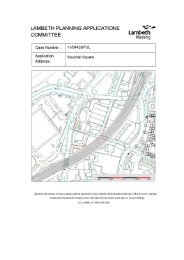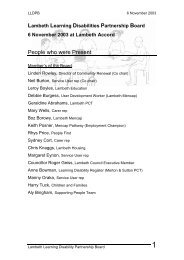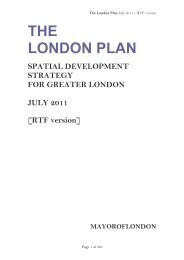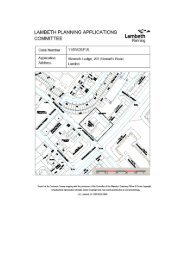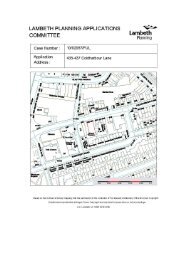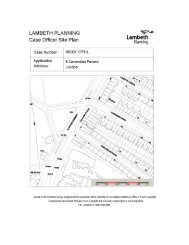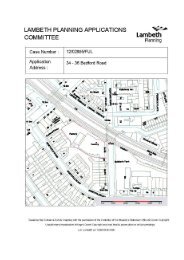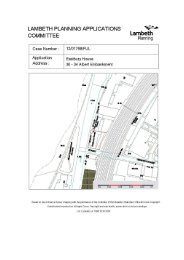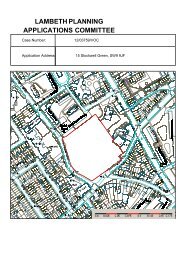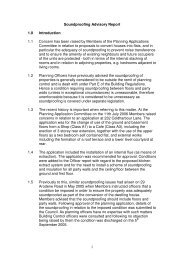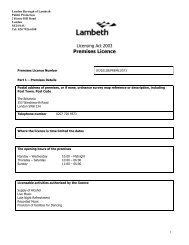04a JSNA Appendix , item 5. PDF 6 MB - Lambeth Council
04a JSNA Appendix , item 5. PDF 6 MB - Lambeth Council
04a JSNA Appendix , item 5. PDF 6 MB - Lambeth Council
You also want an ePaper? Increase the reach of your titles
YUMPU automatically turns print PDFs into web optimized ePapers that Google loves.
DRAFT<br />
<strong>JSNA</strong> Project Plan<br />
Overview of Project<br />
Background<br />
The concept of Joint Strategic Needs Assessment (<strong>JSNA</strong>) was introduced in the<br />
Department of Health’s (DH) Commissioning Framework for Health and wellbeing<br />
document published in March 2007. The Local Government and Public<br />
Involvement in Health Act (2007) [Clause 116] places a duty on upper tier local<br />
authorities and Primary Care Trusts (PCT) to undertake a Joint Strategic Needs<br />
Assessment (<strong>JSNA</strong>). This provision came into force in April 2008. The Director<br />
of Public Health, Director of Adult Social Services and Director of Children’s<br />
Services are jointly expected to take a lead in producing a strategic needs<br />
assessment through strong partnership.<br />
The DH describes <strong>JSNA</strong> as ‘a systematic method for reviewing the health and<br />
well-being needs of a population, leading to agreed commissioning priorities that<br />
will improve health and well-being outcomes and reduce inequalities.<br />
The <strong>JSNA</strong> is expected to “describe the future health care and well-being needs of<br />
local population and the strategic direction of service delivery to help meet those<br />
needs”. A key element of <strong>JSNA</strong> is that it should involve all the important<br />
stakeholders in identifying needs and take appropriate actions to address those.<br />
The assessment process is expected to make use of existing information, identify<br />
gaps, actively engage stakeholders including patients and public for their views,<br />
understand local service provision; and most importantly, the outputs or findings<br />
be translated into actions for the commissioning and delivery of health and social<br />
care services, health improvement and well-being programmes and<br />
interventions.<br />
The World Class Commissioning competencies emphasise the role of <strong>JSNA</strong> in<br />
driving the long term commissioning strategies of PCTs and their collaborative<br />
work with community partners including public and patient engagement. The<br />
<strong>JSNA</strong> is envisioned as a dynamic process periodically updated and is expected<br />
to contribute immensely as a key tool to achieve a shift towards commissioning<br />
to improve health and well-being outcomes and reduce inequalities.<br />
Aims and Objectives<br />
Aim<br />
To understand the current and future health and well-being needs of the<br />
population; over both short term (3-5 years) to inform Local Area Agreements<br />
(LAA), and the longer term (5-10 years) to inform strategic planning and<br />
commissioning.<br />
<strong>Lambeth</strong> <strong>JSNA</strong> – Preliminary assessment<br />
Version 4<br />
October 2008<br />
122



